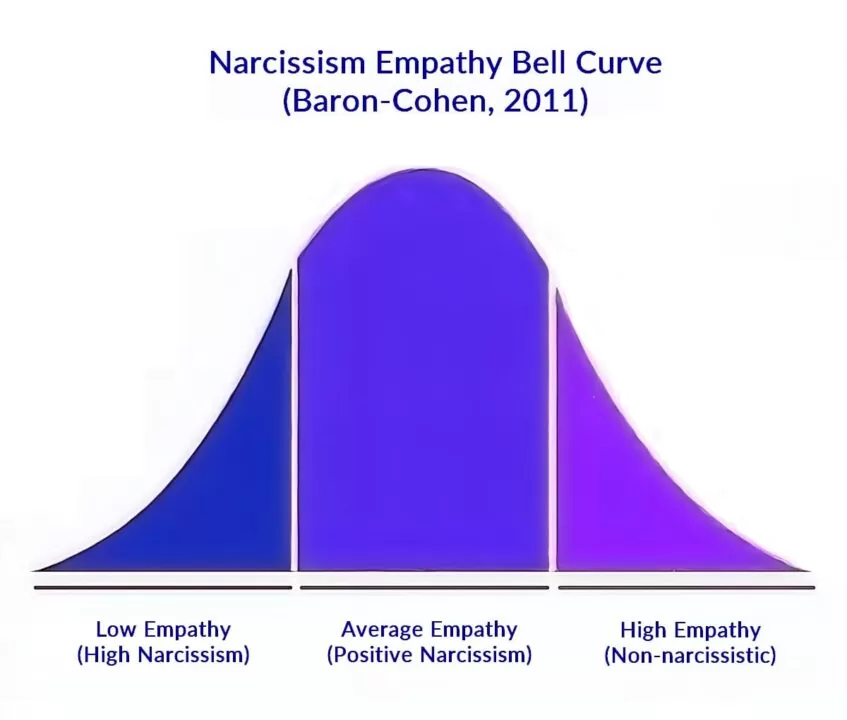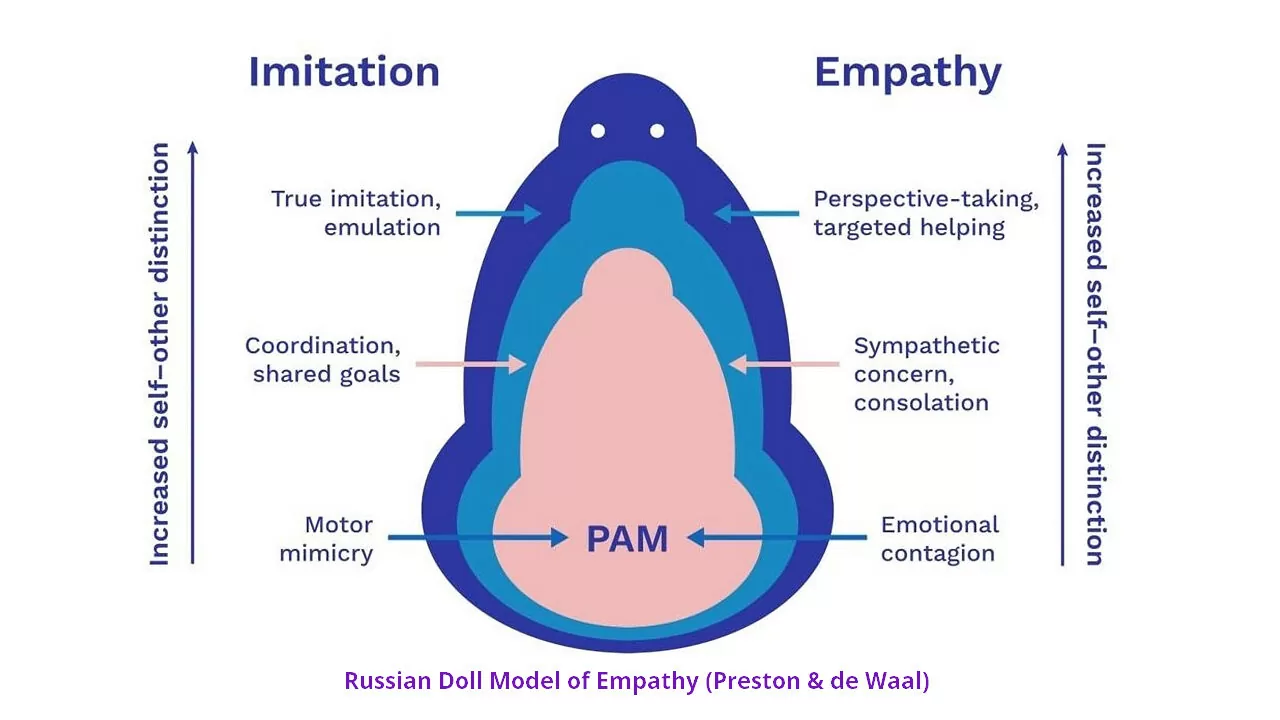Today's Friday • 8 mins read
Do narcissists feel empathy for certain persons in their lives? Is the idea of narcissist-empath a myth?
Many believe that a narcissist can feel empathy, and there is some truth to that idea, even if it appears odd at first. The truth, according to psychology, is a little more complicated.
When a narcissist experiences narcissism, they need to talk about themselves compulsively. You can’t make them stop with your gestures of boredom or disbelief; they can’t read those signals.
Do Narcissists Have Empathy
By definition, a narcissist lacks empathy, but there’s a subtle depth to that. They lack emotional empathy, but may have cognitive empathy (also known as perspective-taking).
- Cognitive empathy is when someone can understand and perceive the thoughts and perspectives of another person. Narcissists may have this.
- Emotional empathy is when someone can feel, share, and respond adequately to the emotions of another person. Narcissists do not have this.
As a result, they may understand your suffering, but they will remain unmotivated to take action to help you.
Another way to say it: narcissists can understand the pain, thoughts, and emotions of others, but cannot feel the same emotions or get moved by their suffering to act in compassion.
Did you know there are six types of narcissists?

What’s The Truth About Narcissist-Empaths
The term “narcissist-empath” is a popular term to describe a person who has both narcissistic and empathetic traits at the same time.
However, narcissism and empathy are generally considered opposite ends of the emotional spectrum:
- Narcissism involves self-importance and self-service at the cost of ignoring other people’s needs and feelings.
- Empathy, on the other hand, is the ability to understand and share the feelings of another person. Those with empathy are often very attuned to the emotions of others around them, and tend to be very caring and supportive of others.
So, the idea of a “narcissist-empath” is largely considered unlikely, as we see them as being mutually exclusive.
Still, a person may show narcissistic behaviors in some situations and empathetic acts in others. For example, this person might be very self-centered and demanding in their personal relationships, but also very caring and supportive of their friends and family.

Do Narcissists Fake Empathy
A narcissist’s cognitive empathy allows them to understand what you think and feel. It lets them figure out how you can be better manipulated — by hurt, threats of abandonment, or love, or high praise.
And this is where they use their fake empathy skills. They often train themselves to be good at faking emotional empathy.
Narcissists fake empathy to fool you into thinking that they can respond to your emotions, and feel your feelings, and will act with compassion when you need them.
What they do is this:
- Use their cognitive empathy to figure out what emotion they should be expressing.
- Then they use their acting skills to mimic that emotion to fit in.
So, while they can fairly accurately read what’s going on in your mind, they cannot feel the same emotions as you are going through.
- They can correctly read thoughts like, “This person is planning how to escape this conversation right now.”
- However, they do not have feelings like, “I am overwhelming this person with my achievement stories, so I need to shut up.”
Narcissists are copycat empaths, not true empaths.
Narcissists usually choose empaths for intimate roles like partner and friends since they are easier to manipulate. Then they learn from them how to show empathy and use the skill to achieve their own goals.
Why do narcissists struggle with a lack of empathy?
The root of narcissists’ lack of empathy lies in their troubled childhood. They usually couldn’t develop the full range of empathy skills because they were abused as children.
Their narcissism (extreme self-love) evolved as an abused child’s defense mechanism against parental maltreatment. That hurt child grew callous and indifferent to the pain of others.
When a parent neglects a child, pushes them away when they seek love or attention or mistreats, blames, and abuses them, the child’s brain constructs a false world for itself. For narcissists, this internal world is more real than their external world.
The fake self serves as the future narcissist’s defense against insults and abuse. It builds up delusions of grandiosity, self-importance, and apathy (opposite of empathy).
How to deal with a narcissist with no empathy?
The best way to deal with a narcissist who doesn’t have empathy, and most narcissists don’t, is to not deal with them at all, and to go No Contact with them.
If that is not possible, then an effective way is to treat them with the “gray rock method” to disengage from them.
Another way is to show them that they have power over you. If you listen to their tall tales and validate their feelings without leaking your disbelief, they will believe they are in control.
Do narcissists feel sympathy?
Narcissists understand sympathy, which is a feeling of pity or sorrow for another’s suffering.
But their sympathies are profoundly misdirected — they will likely take pleasure in others’ suffering rather than feel pained for the sufferer.
Also, they are good at faking sympathy while also concealing their enjoyment of it.
What is empathy in psychology?
- Psychologists see empathy as an act, a skill, a state, and also a personality trait.
- Empathy is our ability to vicariously experience feelings and understand the situations of another (Hoffman, 2007).
- Two tools to measure empathy are the Hogan Empathy Scale (Hogan, 1969) and the Multidimensional Emotional Empathy Scale (Caruso & Mayer, 1998).
Frans de Waal, a well-known researcher, likens empathy to a Russian doll with many layers: intellect, recognition, and imitation, around a central core of emotion.

Who is an empath?
An empath is a person who feels more empathy than the average person. Their heightened empathic capacity, which allows them to quickly sense the emotions of those around them, is unexplainable by conventional science. It often pushes them to help others without being asked.
By the way, the word “empath” is highly looked down upon by psychologists. What comes close is Highly Sensitive Persons (HSPs).
Judith Orloff, who wrote Thriving as an Empath: 365 Days of Self-Care for Sensitive People, says empaths are “emotional sponges” who absorb the world’s joys and stresses. She says empaths lack barriers (that most of us have and use) to shield themselves from emotional over-stimulation.
5 FAQs on Narcissism and Empathy
1. Can a narcissist be an empath?
So, while narcissistic empathy may help them understand where your shoe pinches, they are unlikely to wear your shoe and experience the pain that you feel.
2. What type of empathy do narcissists lack?
To compensate for their lack of emotional empathy, they use their cognitive empathy to mirror postures and gestures to mimic emotional empathy.
Narcissists are incapable of prosocial behavior (that is, unable to act out of empathy) because narcissism is a defensive mechanism that blunts emotional response to witnessing others’ distress.
3. Do narcissists know they are hurting you?
Their awareness of your pain, however, does not compel them to respond with compassion and stop their cruel acts.
4. Do narcissists apologize?
5. Can you teach empathy to a narcissist?
However, they do so only when they are told to or when it lies in their self-interest. They cannot automatically be empathic, especially emotionally and compassionately.
“Narcissists always seem to be looking for sympathy and empathy from you. Because they lacked those while growing up.”
Final Words
Anyone can have a few narcissistic qualities, but it does not give us a right to brand them as narcissists.
Narcissistic Personality Disorder (NPD) is a clinical diagnosis and a serious mental disorder with high self-harm rates (Pompili et al., 2004).
If you feel someone close to you is narcissistic, suggest they see a mental health professional.
√ Also Read: Vulnerable Narcissism: The Not-So-Dark Side of Narcissism
√ Please spread the word if you found this helpful.
» You deserve happiness! Choosing therapy could be your best decision.
...
• Disclosure: Buying via our links earns us a small commission.